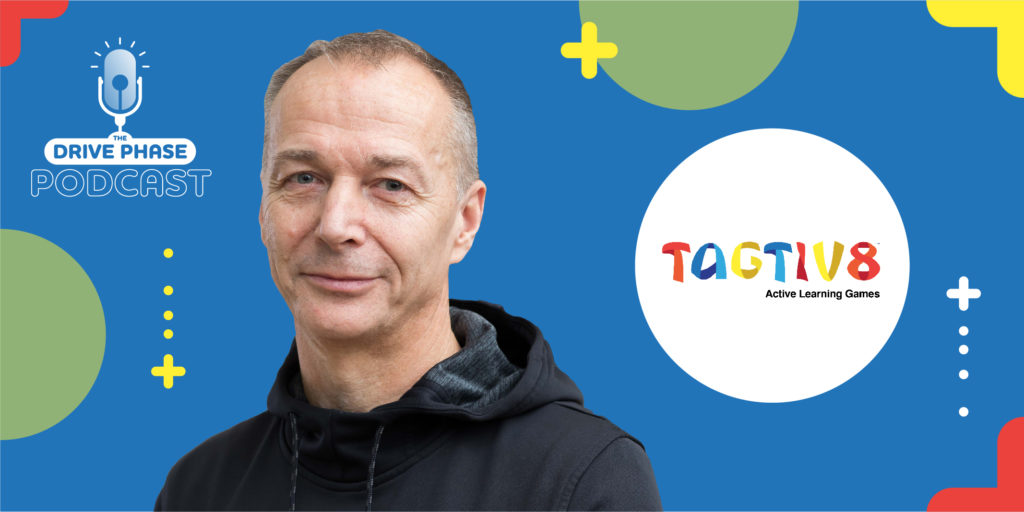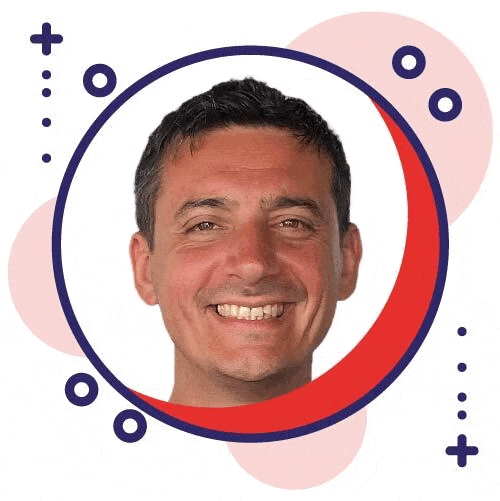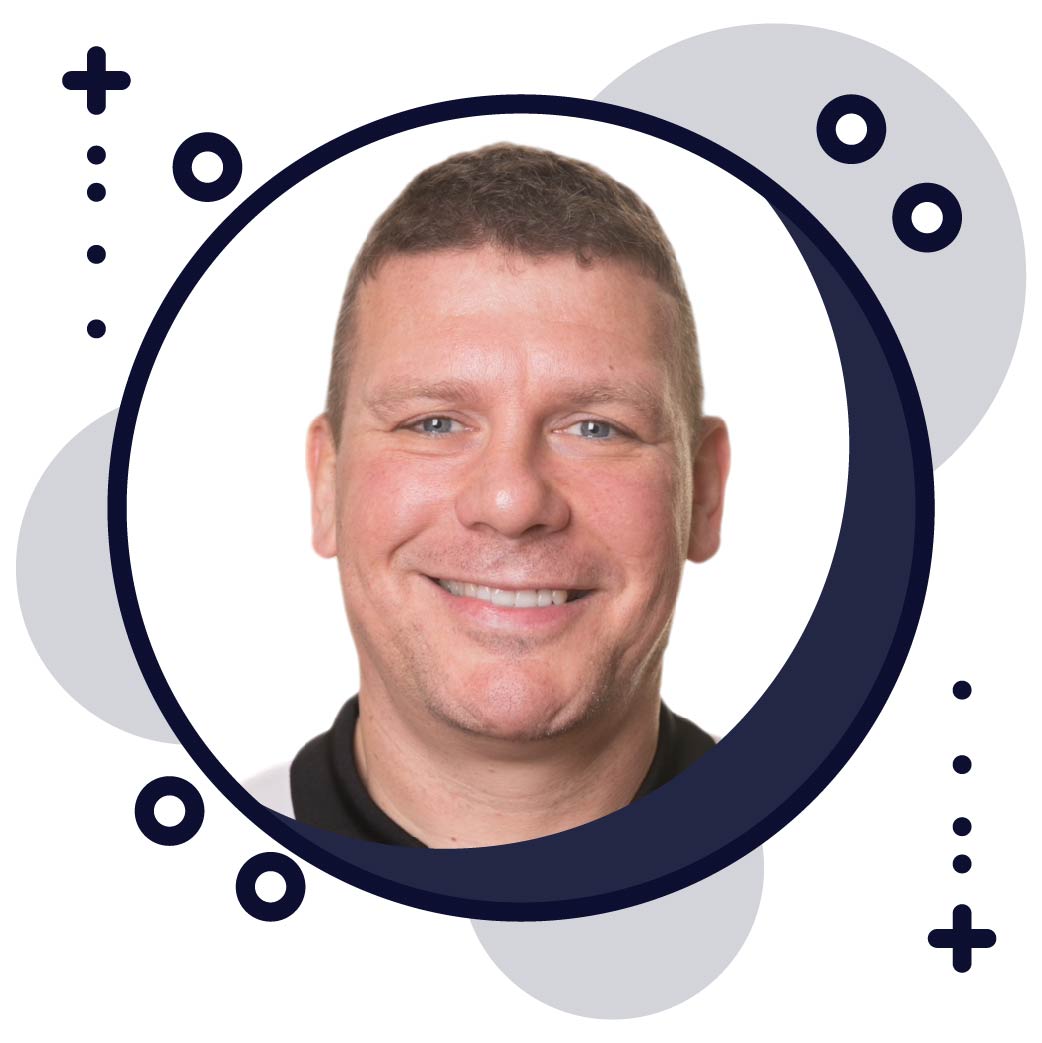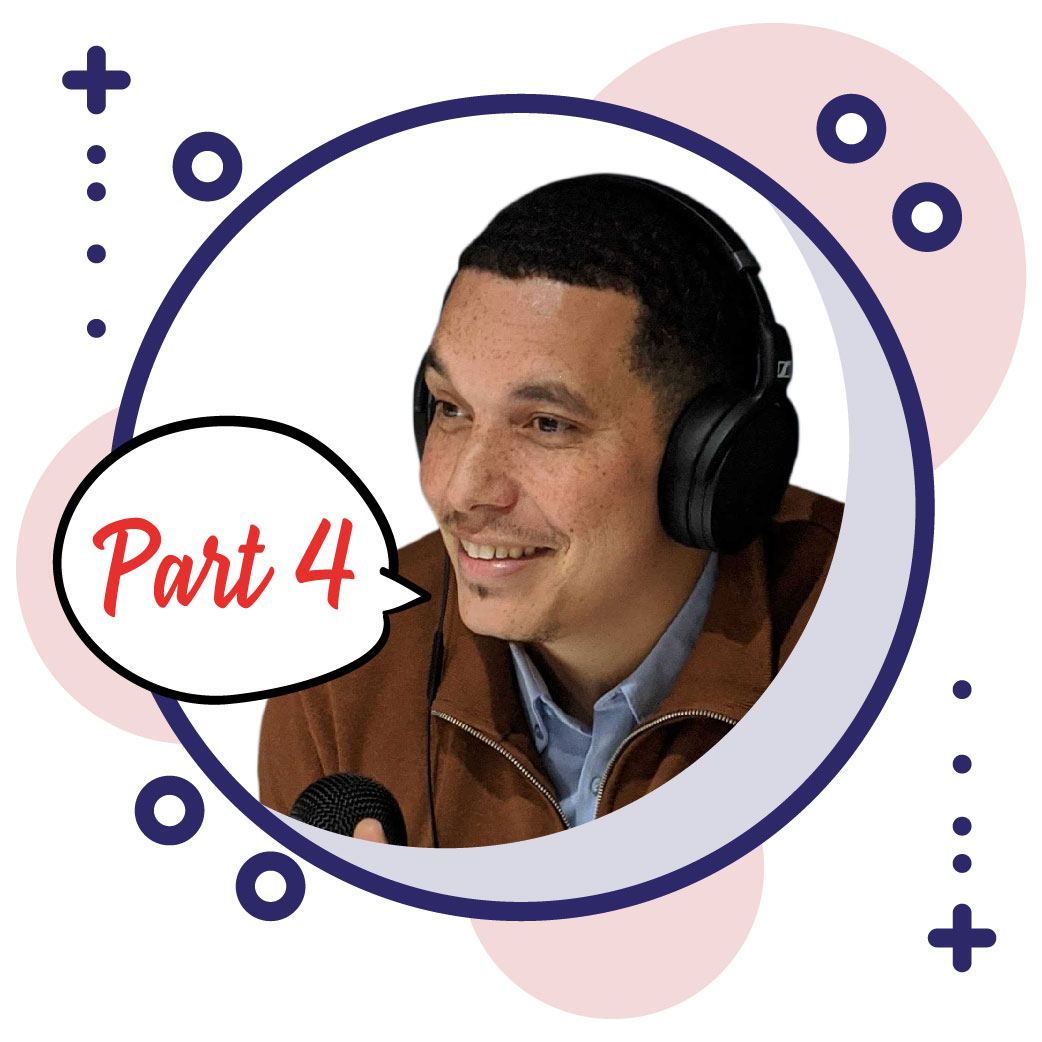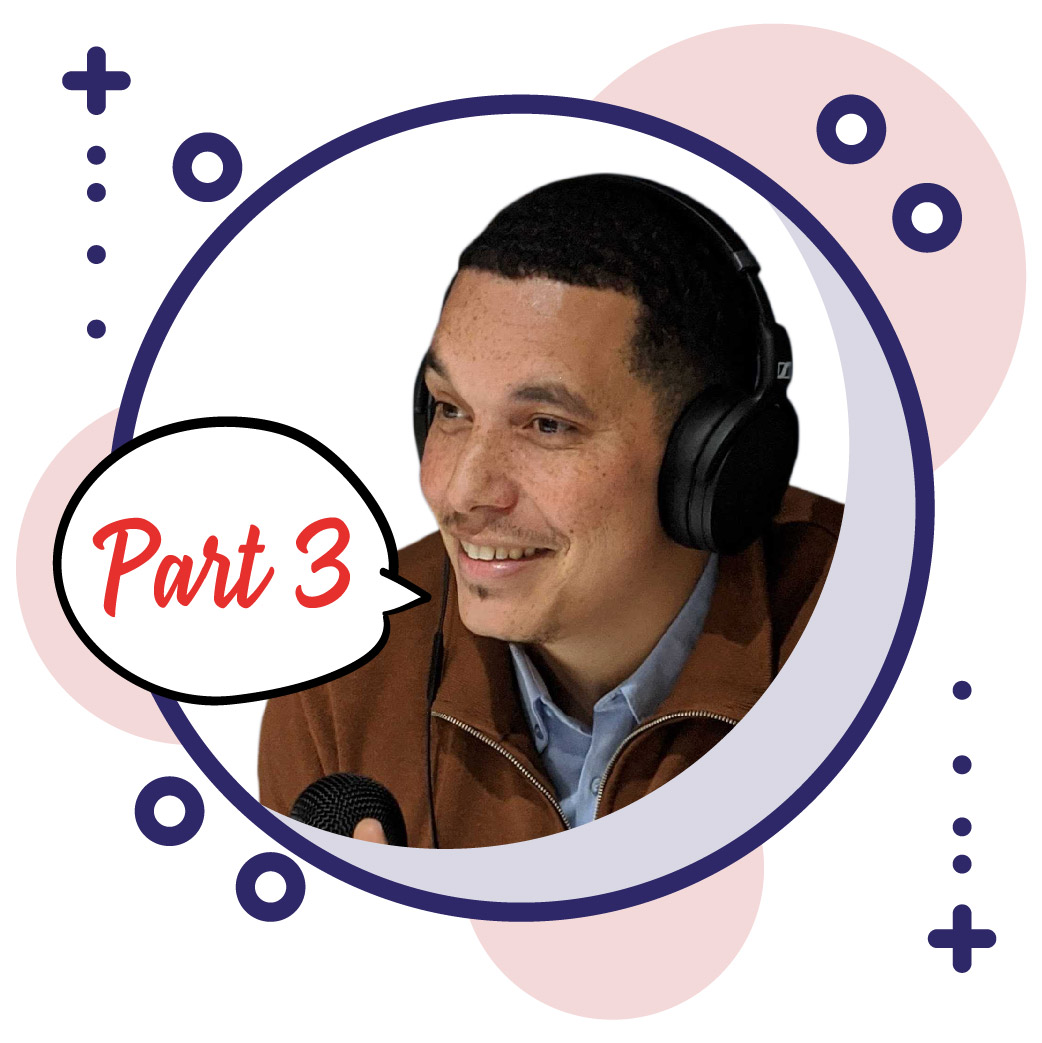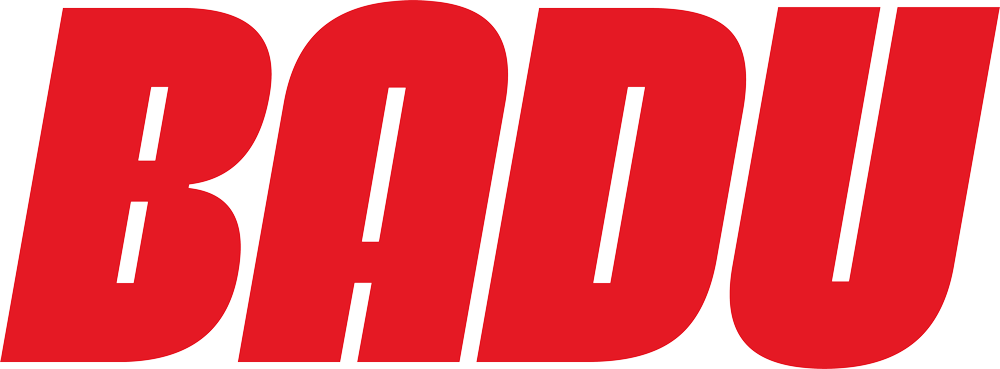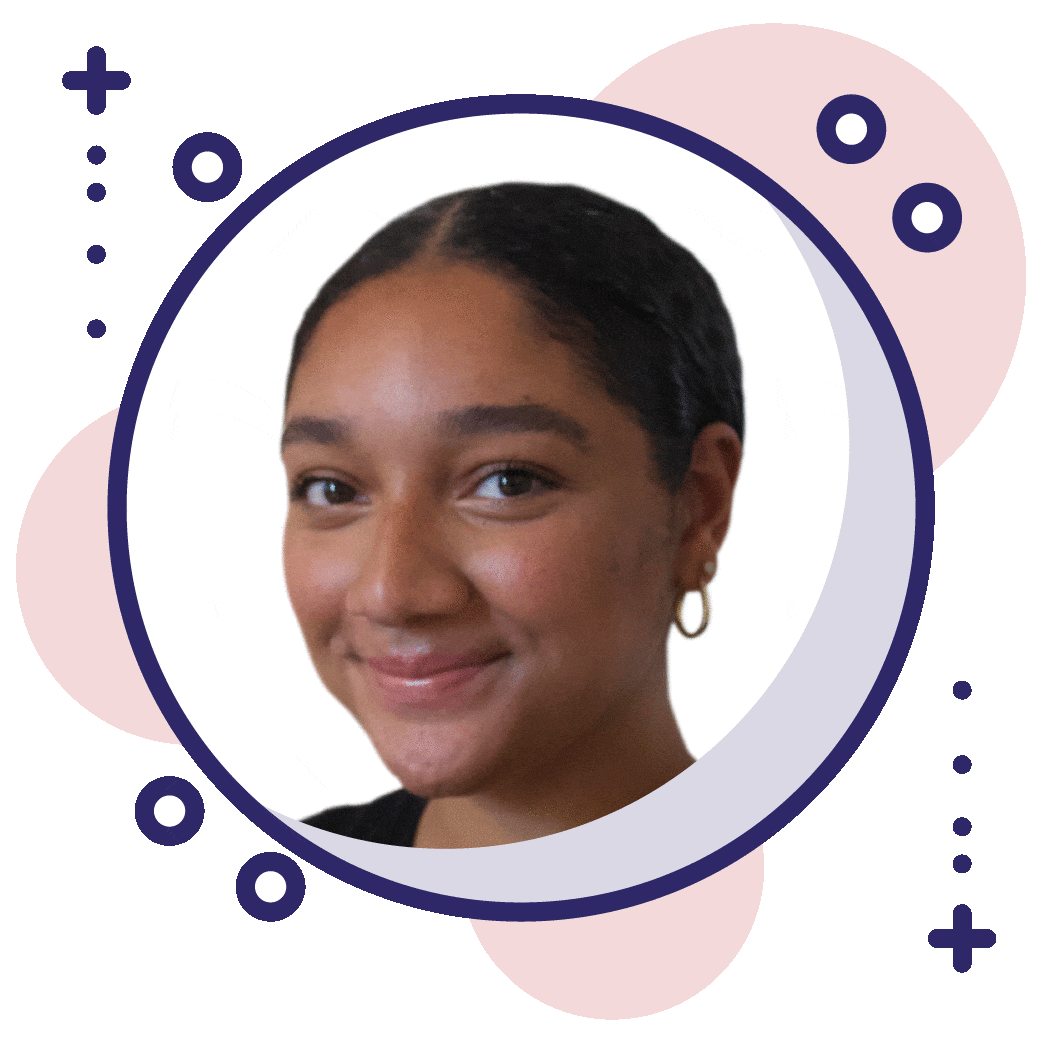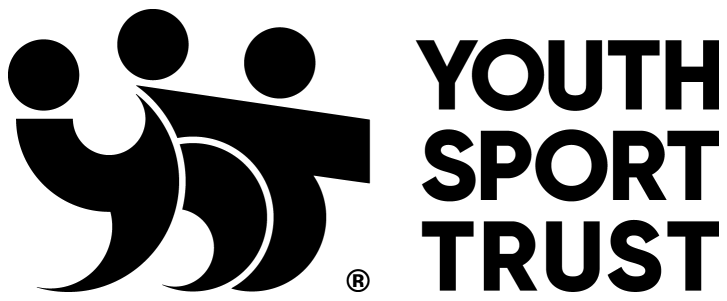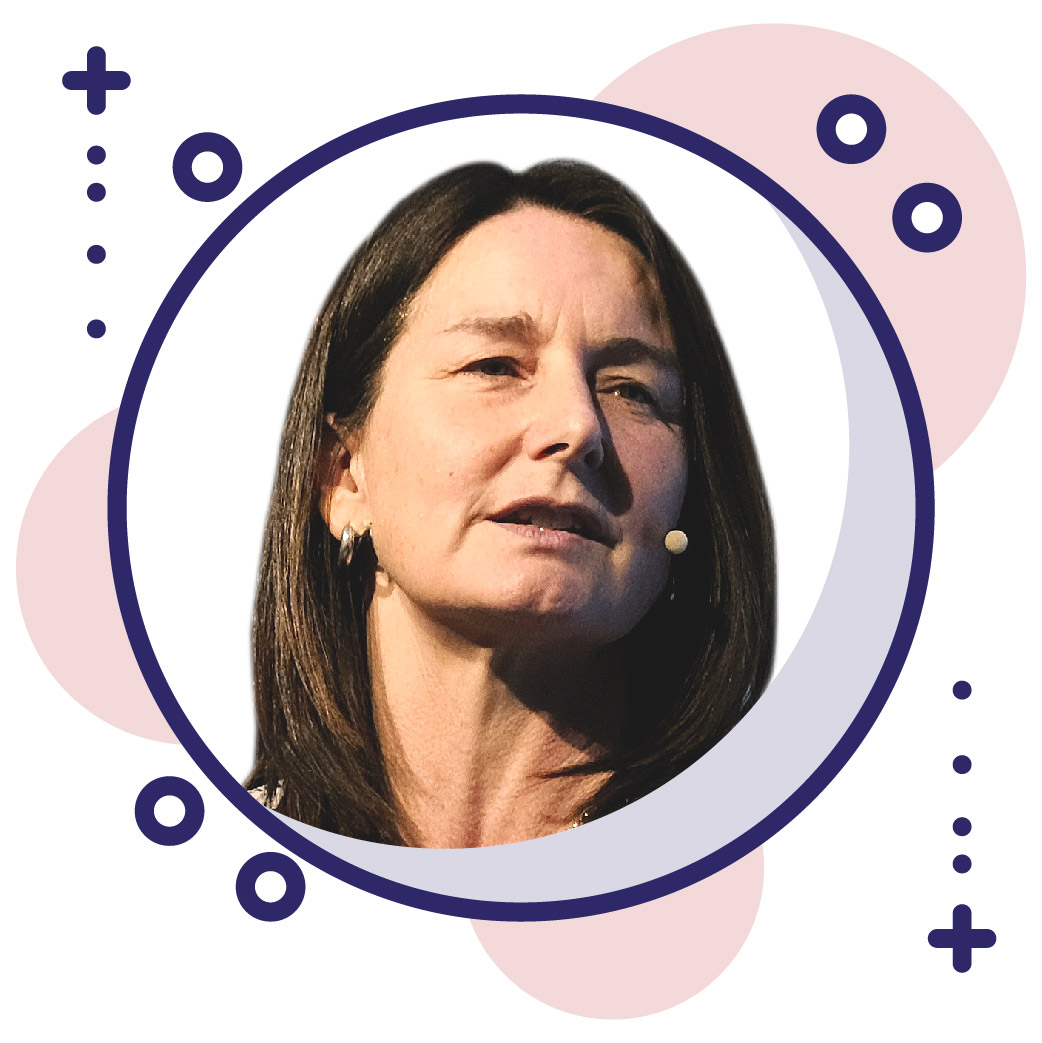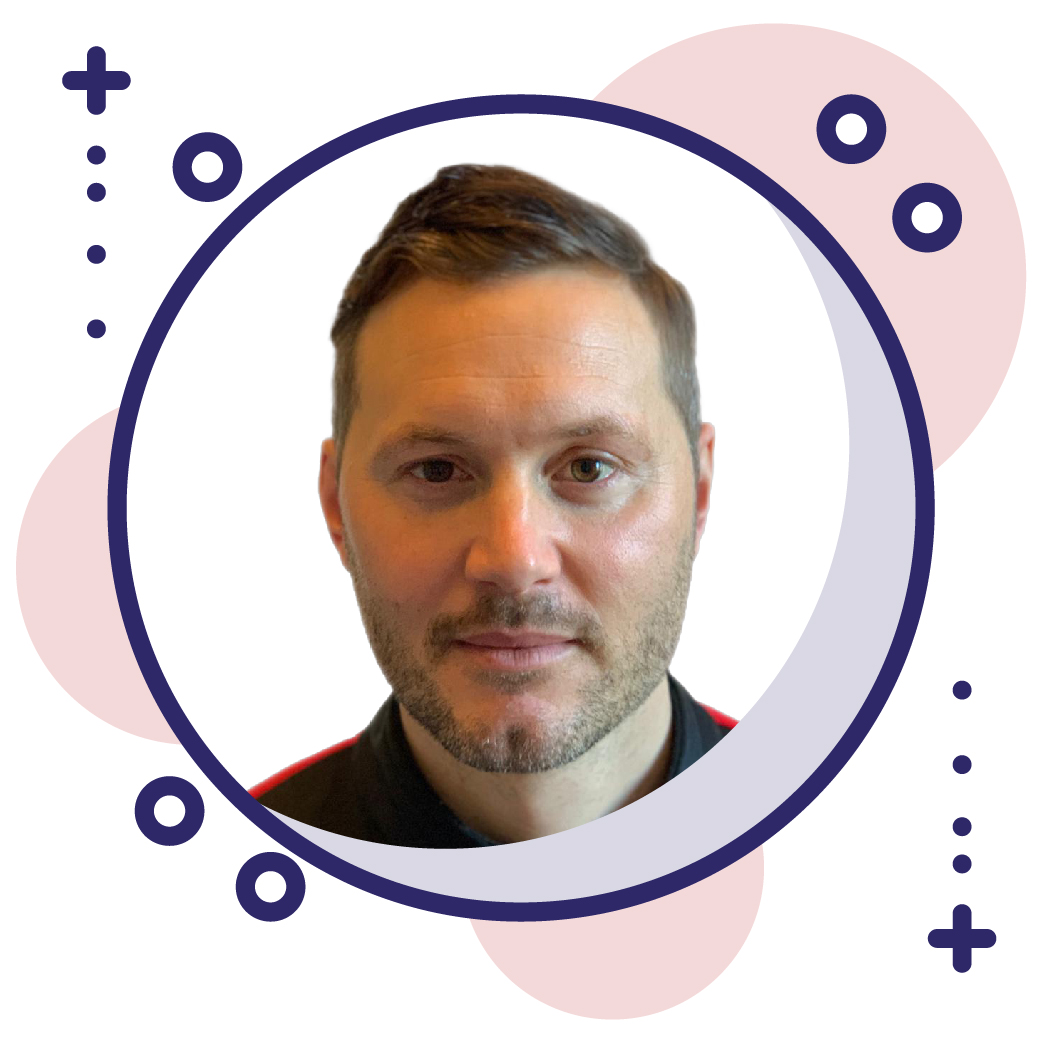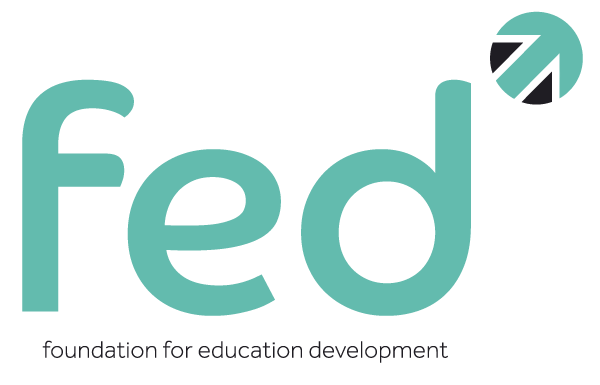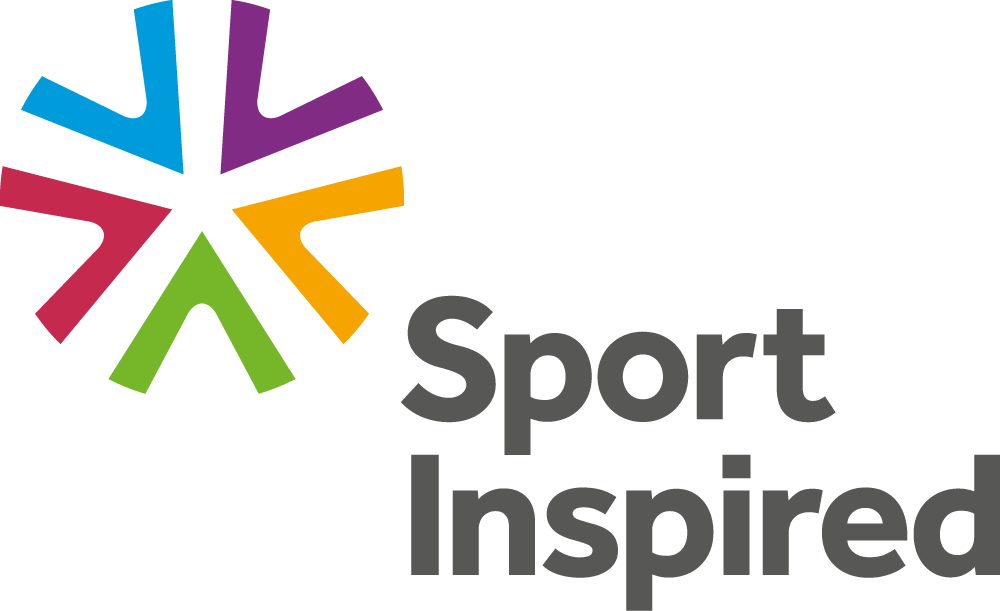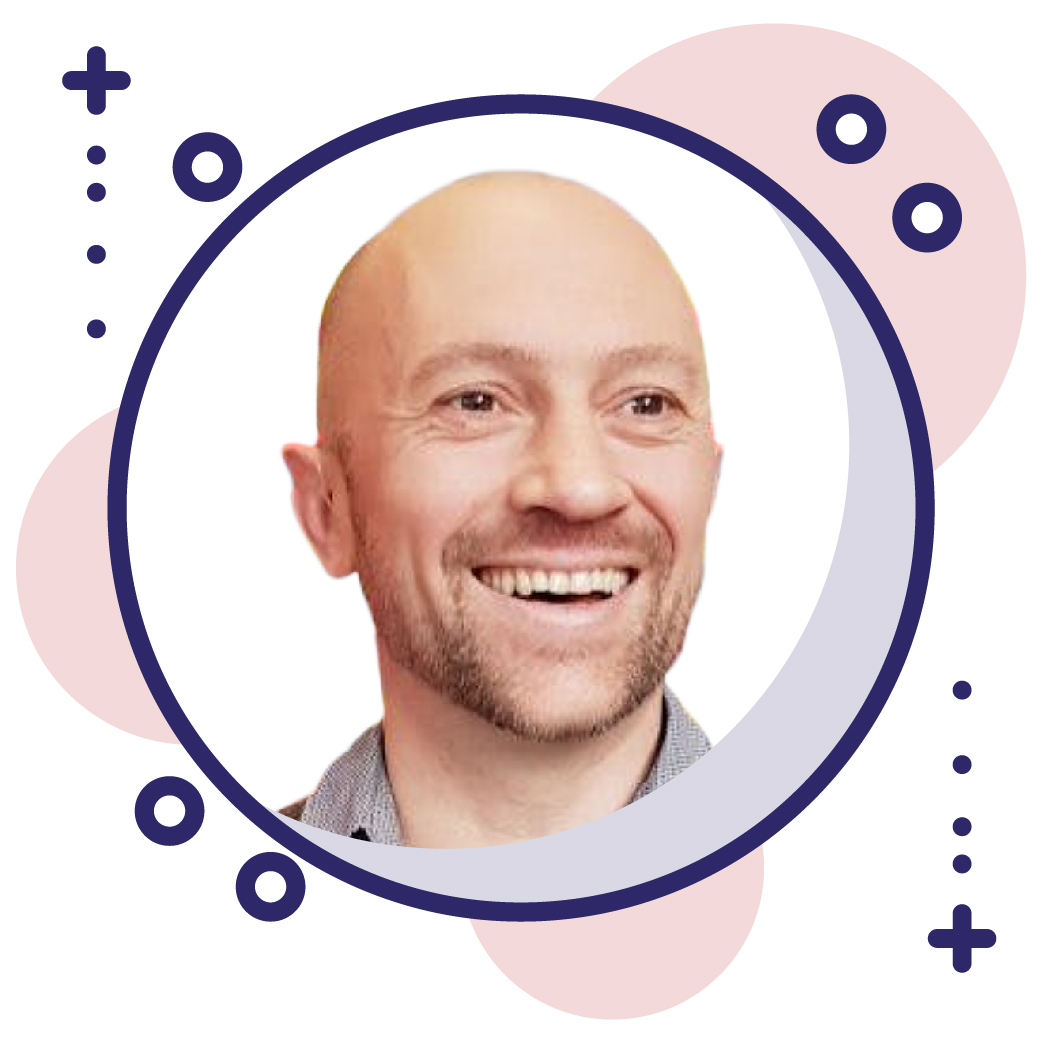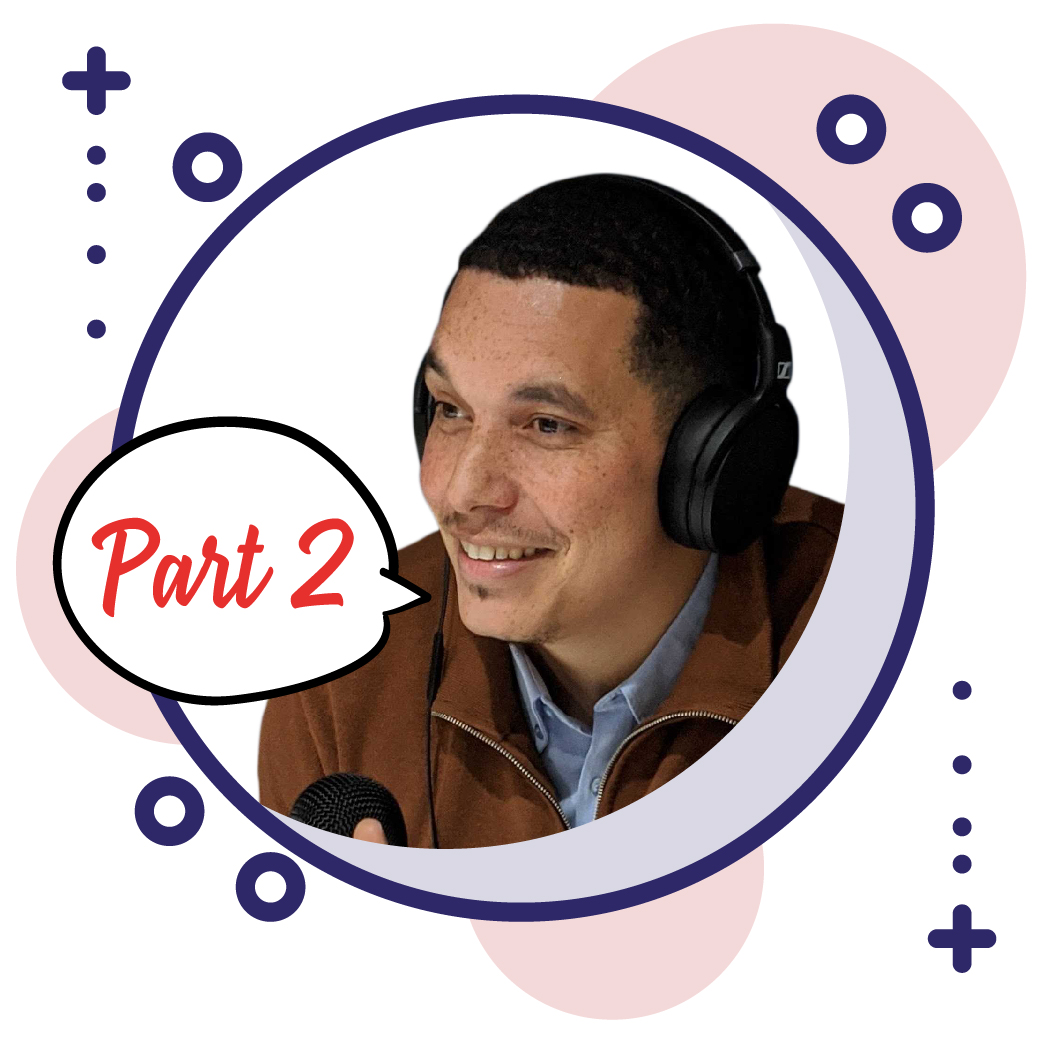Bryn Llewellyn 0:00
But once you’re in the education system, you realise that you’re just a little cog trying to get children to pass tests. And don’t get me wrong, I was pretty good at it. I surrounded myself with good teachers and good school leaders, and we got children through Key Stage 2 SATs, but I didn’t want to look back on life and think that’s all I’ve ever done. And that’s why I decided to create Tagtiv8.
James Moore 0:29
From Coordinate Sport, it’s the Drive Phase. A show about sports founders, leaders and experts, and the stories behind their business journeys. Our guest on this episode is Bryn Llewellyn, founder of Tagtiv8 and Move & Learn CIC. Following a successful career in primary teaching and leadership, Bryn had a lightbulb moment, which led him to create his pioneering approach to physically active learning. This week, we hear a different perspective as Brynn expands on his journey from leaving teaching and then launching Tagtiv8. Evidence of the impact of his programmes underpins his approach to curriculum development, which has led to consulting engagements with the likes of the BBC, the Super Movers programme, research projects with UK academics, and even a TED talk. We dig into all of it in this episode. Enjoy the show.
We’re really excited to welcome Bryn Llewellyn to our podcast for this week’s episode. He’s going to tell us all about his company Tagtiv8 and insights into his journey in the industry and how he’s come to be one of the influences around child development, curriculum development. So we are pleased to have you on the show today, Bryn.
Bryn Llewellyn 1:45
Likewise, I know you’re just like east of me a fair few miles. Normally we’d be meeting over a coffee, but maybe we can save that for 2021.
James Moore 1:54
Exactly, I think we may be in the same tier at this point, but we’ll see what happens in a few weeks. What we tend to do when we get started is look at trying to get to know you a little bit better. So you were born and raised in Wakefield, West Yorkshire initially. Is that right?
Bryn Llewellyn 2:10
No, I’ve landed in Wakefield, but initially born and raised in Tyneside, South Shields. Not that he can guess from the accent. So I was raised there and then became a teacher, working in Bradford, West Yorkshire. And it was a case of when I was talking the children would say, what was that, sir? What? So I realised that the Jordie accent didn’t transpose itself to West Yorkshire very well, and the accent has disappeared slightly. Then I moved to London, and now I’m back in West Yorkshire, in Wakefield.
James Moore 2:49
In terms of school, if you can cast your mind back to that, how would you describe your childhood and your school life?
Bryn Llewellyn 2:57
I wouldn’t say I was the best of learners. The main reason I went to school was to hang around with my mates and play football. And I was just like one of those kids who just quietly got on with things, but I didn’t really engage with the learning in the way that I could have or should have. I think in those days, it was a case of sit down, shut up, listen, look at the board at the front and just absorb. And I must admit, sometimes I would be one of those kids who’d be looking out the window.
James Moore 3:28
And your experience of PE and school sport at that time, how was that? Did you have any memories of how PE was then, and if it engaged you?
Bryn Llewellyn 3:38
Yeah, I remember the things like cross country running. In terms of the PE, staff would just crash out on the crash mats and let the kids go running up into the hills. They used to take bets on who would be first and who was going to be last. It was kind of free for all, even during the summer season. If you didn’t want to play cricket or tennis, you could just go and play football. So it was very laid back, not what it’s like nowadays at all.
James Moore 4:08
Do you think that worked for you as a child?
Bryn Llewellyn 4:10
Yeah, I was massively into football. So if I could play football during the summer season, that was great for me. But ultimately, I don’t think there was much in the way of development for athletics or other subjects or other sports.
James Moore 4:27
So you went into teaching, and obviously, you’re an entrepreneur now. Was there anything that influenced you to go into teaching at that point?
Bryn Llewellyn 4:37
I was a bit of a tree hugger. I was left of centre, and my politics were always green rather than red. So I was like the chair of the local Friends of the Earth group, a keen campaigner for Greenpeace and any other environmental action groups going. I then did a degree in environmental studies. So it was very much a case of I was just naively wanting to save the world. And then you realise that he can’t do it on your own. So I thought, I’m going to have to try and look at the words of Nelson Mandela in terms of education. That’s the one way to change the world. So I decided I would become a primary teacher with a concentration on environmental education. So education about the environment, through the environment, but ultimately for the environment. And that was why I got into teaching in the first place. But then when I got started, I realised it was a case of, okay, we have to do things like English and Mathematics. And then we have to do things that are all based on testing. So as I say, I had my naive outlook of let’s change the world, but once you’re in the education system, you realise that you’re just a little cog trying to get children to pass tests. And don’t get me wrong, I was pretty good at it. I surrounded myself with good teachers and good school leaders, and we got children through Key Stage 2 SATs, but I didn’t want to look back on life and think that’s all I’ve ever done. And that’s why I decided to create Tagtiv8.
James Moore 6:17
So you mentioned there about the administration and paperwork side of things, and I know many teachers have that burden of teaching to the test. Is that one of the things that pushed you out into consultancy initially?
Bryn Llewellyn 6:32
As a male in a primary school, you become the PE lead by default. And then you become the deputy headteacher and the acting headteacher, and then you realise that you’re not exactly enjoying it. Because as an acting headteacher, there was no classroom connection. So I went back to becoming a deputy headteacher, but ultimately, it was a case of getting kids to pass SATs, and those were the pressures that we were under, through Ofsted and DFE. I didn’t want to look back on my life and think that’s all I’ve ever done. In most schools, children have a soul diet of English and Mathematics, because those are the subjects they get tested on. When I was a deputy headteacher in the last school, we had this pot of money for creative partnerships. So we brought in artists, dramatists, musicians, and filmmakers, which was brilliant because these children and their families learnt they could get a job in the creative industry, and their aspirations just changed. But once that funding was pulled back by the government, I knew I needed to find something that I really enjoyed. And that’s where the Tagtiv8 programme came in. So when I was teaching in Bradford, Bradford Bulls were in the ascendancy, which shows how far back it is.
James Moore 7:47
A while back now, yeah.
Bryn Llewellyn 7:48
They had their tag rugby scheme, and I always had this idea of tag rugby meets Scrabble or tag rugby meets Countdown. But it was always put on the back burner. Then when I left teaching full time in 2011/2012, I just thought, let’s explore this possibility. I looked at the intellectual property, and nobody had ever done anything like this before. So I decided, let’s play with it. I trialled the games with some children in Bradford, some year seven children, and I thought it was great. They didn’t, however. They didn’t annihilate it, but they certainly helped steer the programme to where it is now. We took on board their constructive criticism, their feedback, and without their initial input and the input from the teachers, Tagtiv8 wouldn’t be where it is now.
James Moore 8:03
I remember some of our research said that the initial feedback from some of the teachers was the games were a little bit like drinking games.
Bryn Llewellyn 8:36
Not from the students.
James Moore 8:51
Not from the students, but yeah, some of the teachers.
Bryn Llewellyn 8:51
One of the first schools to come on board with the Tagtiv8 programme was down in London. And the deputy headteacher phoned me and said, the kids love it. She said we have a great quote for the website, which was “Whoever created Tagtiv8 is a genius”, so I thought, I’m having that. But then she spoiled it by continuing the conversation and saying that many of the games in the resources pack seem to resemble drinking games from university. Needless to say, some of the ideas like fizz buzz, we did take on board those sort of games, and yeah, we don’t have tequila in the resources section anymore.
James Moore 9:30
I want to dive into how Tagtiv8 started in the full model, but before we do that, you mentioned then around the schools and Maths and English. Our listeners are leading companies, and they have some fantastic programmes, but they struggle to get them into schools, especially in the mornings. Schools always have a focus on numeracy and literacy in the morning. I’m just wondering what your take on that is in terms of physical activity in the morning? The impact of it, and whether you push for that with Tagtiv8 and in the schools.
Bryn Llewellyn 10:07
Historically, we do English and Maths in the morning and the other subjects in the afternoon. Except for the poor kids who don’t grasp it in the morning. Then they get an intervention programme in the afternoon. So there’s a lot of kids who don’t get access to PE and the arts because the focus is on English and Maths only. When I was a deputy headteacher and a teacher, I loved taking the children into the sports hall and doing PE first thing in the morning because it was a great way of engaging them straightaway. But you’re right, and I do think for Tagtiv8, one of its USPs is that it addresses English and Maths, those core subjects, through physical activity, combines those subjects with physical activity. So, it can run in the morning or the afternoon. And I always liken the tags to building blocks or Lego. And in terms of that creativity and flexibility, I wanted to devise a programme that went from early years all the way up to six and beyond, and that would work for a class of 30, but also an intervention group for 2 – 6 kids who have not grasped it in the main lesson. So yeah, it’s a unique blend, but it works.
James Moore 11:33
Yeah, I always think about myself and my routine, and I always feel better doing a bit of physical activity first thing in the morning, setting up the day. I think it would be good for schools to embrace that a little more.
Bryn Llewellyn 11:47
Yeah, and if you’re sitting down working, the quick fix is to reach for the cup of coffee or maybe the glass of water, but I’ve found over lockdown, in particular, I would leave the water away from the desk, so I have to physically stand up for it. And likewise, if the clock hits four or eight or twelve, I’ll stand up and walk around. Or when the clock gets to the hour, I’ll stand up and dance around the room a little, and that’s worth its weight in gold to recharge. If it works for me as an older adult, just think about the benefits to a child who’s sat down in front of the whiteboard, looking out the window. We need to think in terms of how do we change these behaviours. If you look at the concentration span of a child, it’s not an hour, which is how long most lessons last. It’s a case of let’s think about ways we can bring about behavioural change with little things like standing up and moving around.
James Moore 12:58
Yeah, I agree. It’s almost like being active actually creates that energy for you, so you’re a bit more focused. Fast forward, you left teaching 2010/2011, so 2012 was your first year for Tagtiv8. What was that journey like? Obviously, creating the programme and you did a bit of market research with the school in Bradford. How did you take it from there to market?
Bryn Llewellyn 13:20
In the early days, I was just playing around with it. My background was teaching and school leadership, so no business acumen whatsoever. Not even looking at YouTube videos, it was a case of build it, and they will come. And it’s a case of they came very, very slowly. But I was writing curriculum material for other people, and I took it to one organisation and said this is my idea. Do you think it will work? And they went, no. So I said, right. If you don’t want it, I’ll just run it myself. So that consultancy work has diminished since Tagtiv8 has come on board. So 2012, the idea, 2013 registered a limited company, and we didn’t really start pushing it as a business properly until 2015 – 2016.
James Moore 14:11
In terms of the model, you’ve got the list, you’ve got the resources that you’ve created. With going to market, is that training package provided to schools, and do you want to lay that out for us just how it works?
Bryn Llewellyn 14:26
So how do you get people to realise how good it is? You have to see it in action to really get it and see the impact on the children. So quite often, I’ll do an activity day and follow it with a training session. So it’s a bit of a sample session for the teachers to see the impact and how easy it is to run. So if I’m doing an activity session, the teacher will often say, God, this is so easy, I wish I thought of it. So we do activity days. The savvy schools then go, okay, then we’ll sit the children down and have a word with the school council. And they’ll say, you’ve had a look at the game, you’ve played the game, do you think we should invest our PE and Sport Premium funding in it? And if the kids stand up and say, yes, the school leaders put that on their website and say we use the people voice to determine how to spend school premium funding. Some schools do it online, some do an activity day, and some people buy the resources and the planning documents, and then they have the training face to face or online nowadays. So there’s no one route to market. It’s whatever fits the needs of the school at that particular time.
James Moore 15:44
I’ve seen you at many events and conferences, school conferences and PE conferences. But for the listeners who haven’t come across Tagtiv8, can you outline what it is and how it looks in terms of the concepts?
Bryn Llewellyn 16:06
Yeah, I describe it as tag rugby meets Scrabble or tag rugby meets Countdown, but then I realised that the term tag rugby turns certain people off, so I looked back to what’s the ultimate playground game, it’s tag. And so I was selling it in terms of tag or tag rugby meets Scrabble/Countdown. The idea is the children move around in different ways. So it could be like tag rugby when they grab the tag of each other and run to put the tag in the bucket, or it could be doing relay races, for example. It’s very much a physical challenge, followed by a thinking challenge. With the number version, all the red tags are even numbers, the yellow ones are the odd numbers, and the blue ones are the operations including brackets, more than, and less than symbols. In the letter version, consonants are one colour, vowels are the next colour, and the third colour is the digraphs, trigraphs, prefixes and suffixes. So the children can quickly see patterns with the colours. So they’ve collected the tags, then you give them a thinking challenge. And the thinking challenge could be as simple as ordering the numbers from smallest to largest, finding combinations of numbers that make a number bond, finding multiples of a number, square numbers, prime numbers, algebra. And then, when it comes to phonics, it could be about CVC words, prefixes, suffixes. Because my background is teaching, I can see it being applied to anything, not just English and Maths. And now we’ve got the programme linking to French and German, other languages, History, Geography, Science, even RE. All the subjects can be activated by these little building blocks, the tags.
James Moore 17:59
Yeah, so it’s almost that platform is letting you go across all the curriculum. One question I’ve got because it sounded like there’s a lot of range there, but what’s the most advanced level you can get to with that, Key Stage One and Two, or does it go to Key Stage Three?
Bryn Llewellyn 18:19
Yeah, it goes right from Early Years up into Key Stage Two, so at the end of year six. But this term, I’ve been working with some year seven students in Liverpool. Their PE lead brought me into work with 27 children for five hours, and I thought, God, this is going to be tough. But the kids just saw it and ran with it. And I did a training session with the PE department and the Maths department, and they saw it as the ideal blend. So now they’ve got the resources, and they’re going to run it for year seven and year eight as intervention programmes. So these kids get a weekly, physically active learning session in Mathematics. And as I said, they can do square numbers, prime numbers, algebraic equations. It is that flexible.
James Moore 19:07
It has some of the Key Stage 3 curriculum getting covered then. So in terms of how you roll that out, I know you’re working with over over 300 – 400 schools at the moment. So you’d go into the school, deliver the intervention to get the buy-in, but then you’re also providing CPD for teachers, so they can then use it and spread it far and wide without you having to rack up the miles every day going around the country.
Bryn Llewellyn 19:28
Yeah. Well, pre-COVID-19, I was doing maybe two, three schools a week. And then, obviously, lockdown hit us hard, but it gave us time to develop new games and new ideas. So, for example, somebody suggested tying the belts, not around the middle of the children but the trees. So we develop this tree tag concept, and it’s just like orienteering using the tags. My mission is to train the teachers to empower themselves so they can take that learning beyond the classroom walls, whether that’s into the hall, the playground, or the school fields. And I’ve realised now that sometimes if I’m trying to address all teachers at the same time, it doesn’t work. So you’ve got a look at targeting key members of staff in each school, and they become the move and learn champions, the Tagtiv8 champions, and it’s up to them to support their colleagues on the journey. So, for example, we’ve got a system in place at the moment with the Academy at St. James in Bradford, the most amazing school, and I’m working with year two and year five. And every Friday, the year five teacher will take those kids out in sunshine, wind, rain or, as it happened last week, in the snow, doing active geometry. And it’s a case of giving them a little bit of a hand holding and drip-feeding the planning documents to them rather than giving them everything. It’s a case of asking them what they need and want because you can provide a programme or a platform, but ultimately, there’s no one teacher the same as another. And yeah, you’ve got to listen to and empathise because teachers have got to deal with an incredible amount of pressure.
James Moore 21:23
Yeah, definitely. And you’ve got to cover all the subjects as well, at the same time. I mean, we get to enjoy just talking about sport and PE, but teachers have to cover everything, even the subjects they don’t like. So as the programme has been running, what’s been the biggest impact or achievement you’ve had so far?
Bryn Llewellyn 21:40
Working with children and teachers, the anecdotes come thick and fast, and the smiles do as well. So you know, a comment such as, I never knew he could do that. He’s never written that in his Maths book, or he’s never put his hand up in the Math lesson. That’s a great quote from a teacher. Likewise, we had a child from Leicester, Ethan, come to us at the end of his session with sweat on his brow, a big smile on his face, and he just said, you know what? I thought I was rubbish at Maths, but now I know I’m not. And it’s that transformational moment when this kid, this child, realises that he can do something. But obviously, the smiles and the anecdotes need to be backed up by evidence. So we went to Dr Andy Daly Smith at Leeds Beckett University, and his first round of research had a demonstrated impact on cognition in terms of speed and fluency in Maths. And it was those children who were deemed the less academic that had the greatest impact. And as well as that, we drilled down a little bit further into the concentration levels, and those children who took part in a physical active learning session concentration levels were better for the subsequent session. And then Dr Daly Smith and I did a TEDx talk, where we shared the initial findings, which was brilliant. This then opened up the doors to bring in further funding. So not Leeds Beckett, but Leeds University in the School of Psychology. They’ve got funding to work with more schools over a longer period of time to demonstrate a more sustainable impact. So that initial impact was proven, but we need to prove it over a longer period with more children.
James Moore 23:25
Especially with the PE premium, the evidence in where it’s being spent and what’s the biggest impact, and maybe what version two or three will look like down the line. So, where can we put the funding where it will be really sustainable. So you’ve set your model of training for teachers and let them spread it far and wide, backed up by the data and the research you’re doing.
Bryn Llewellyn 23:46
So, for example, we were working with a school in Leeds, and we did a physically active learning session, and it was such a simple activity. So the children were running around with the tags on the belt, I would shout out a number, and they get together in pairs. And the teacher looked at me and said, this is brilliant. I’m going to try this in my classroom. So I said, okay, then what are you going to do? She said, well, I’m going to print some numbers off, and then I’ll photocopy them and laminate them. So I looked at her and said, why not just take the tags into the classroom? And she smiled at me, and I realised in terms of teachers having this default setting that you’ve got to press a button, download, print, photocopy, laminate, or stick stuff in books. But the Tagtiv8 programme is something that will save teachers time, and that’s what teachers are so short of. And I think teachers, once they get to grips with the programme, they go, oh, I can just get out the tags to do this part of the curriculum. I can get the tags to do that part of the curriculum.
James Moore 24:49
Of course, it’s a different experience for the children as well. In terms of memories, I can remember lessons at school now because they were different from sitting behind the desk like every other lesson. So children are probably more likely to remember that topic or that subject covered if they use a different method like the tags. So that’s great. I’m just going back now because we actually spoke back during the first lockdown, and I remember you were really busy at the time. You were busy creating resources for the BBC, and I just wanted to touch on it. Is it a free resource? Maybe you can give us a bit more information on that one?
Bryn Llewellyn 25:34
Blast from the past there, yeah? So with lockdown, all those school bookings were lost. So I thought, what on earth am I going to do? And luckily, because I’ve done some work with the BBC before, for Super Movers and Live Lessons, they came to me and said we want a hand with some scriptwriting and content creation for Maths. Will you do it? I said, of course, and so every day I was sat at the MacBook, and as part of a team, or be it for a temporary basis of three, four months, we were churning out content and scripts. And yeah, it was great to see it online. And the BBC really thought this through in terms of children who don’t have access to Wi-Fi. It was all on the iPlayer and the red button system, so if you didn’t have Wi-Fi, you could still access these sessions as well.
James Moore 26:25
Just touching on the lockdown and children’s physical activity levels, coming out of that now, we’ve got a big challenge to try and get kids active again and undo all the inactivity that’s been going on. What’s your take on the issue of childhood obesity? How do you think we can tackle that?
Bryn Llewellyn 26:50
I’ll talk about levels of physical inactivity first. So if you look at the data, children up to the age of seven probably get the requisite amount of physical activity per day. I’m not saying all children, but the majority do. And then, at age seven, that level of physical activity starts to decline. And one teacher in Bradford said it’s down to phonic screening, or it’s down to Key Stage One SATs. And I said, it might have something to do with that, but I think that’s when the children start their addiction to digital devices, whether that’s tablets, phones, PCs, etc. And I think that’s when we need to start looking in terms of those levels of physical inactivity. And if you look at the obesity levels, we’ve got children becoming obese earlier and staying obese for longer. And then, if you look at the rates of deprivation and how they link to obesity levels, it’s scary. So in the Tudor times, it would be the rich that were large and the poor that were skinny, and that’s flipped on its head completely. So during the Rugby World Cup, I was working two days with a school in Harrow in North London, and then it was a six-hour journey up to Workington. So these kids in Harrow, an affluent part of London, turn up for the Tagtiv8 sessions in their hoodies and sweatshirts, with a tennis club badge, the rugby club badge, the football club, the athletic club, and the kids, they’re running around and are really into it. Whereas with the kids in Workington, we had to get the adult Velcro belts on some of the year four pupils. And it was just that direct comparison between the rich and the poor, the haves and the have nots. I wrote a blog post about this on the back of the Ofsted findings from October, and somebody said to me that during lockdown, the fat became fatter, and the fitter became fitter. And I know it’s very crude to say that, but it’s true. You know, these kids who have access to gardens, bouncing around with rolled-up socks, etc. But for every child who was doing that, there were one or two children who weren’t doing anything. And, you know, Joe Wicks, bless him, he managed to get quite a lot of kids and families active and off their backsides and their sofas. And I know he came in for a lot of criticism. He’s not the nation’s PE teacher, it was a series of high-intensity interval training sessions, but at least he talked about it in terms of the emotional context and the nutritional context as well. So yes, he came in for a lot of criticism, and he made a lot of money on the back of it, but he did actually start to change behaviours. So I’ll tip my hat to him there.
James Moore 29:38
Yeah, definitely. I think just touching on that. In the more deprived areas, I guess just that access to the gardens is a big issue, during lockdown, but also just children’s activities in general. You don’t have the old school like we did where you could go out and play in the street as much as before. So it’s that lifestyle component. And if everything involves a formally organised club scenario to be active, then it’s always going to hit the more deprived harder. In terms of your business, moving on to running Tagtiv8, what are the recurring challenges that you get day in, day out? I know travel over lockdown is a massive one, but just in general, maybe not COVID related. How’s it been growing a business? And what’s your biggest and most recurring challenges?
Bryn Llewellyn 30:26
Obviously, we have to convince teachers and school leaders that there are benefits to physically active learning.
James Moore 30:31
Do you think that’s more difficult now, or do you think that’s getting easier over time?
Bryn Llewellyn 30:37
I think there is more awareness now than ever before, looking at social media and the work of Dr Andy Daly Smith and other organisations and partners with the Creating Active Schools framework. I think more people are buying into that process now than ever before. I am concerned by Boris Johnson as he keeps talking about levelling things up. I would still harken back to the lack of a level playing field. So, three years ago, I was invited down to DFE to talk about Tagtiv8 and that initial round of research, and the guys at DFE said they really got it, but they couldn’t share it and celebrate it because everything had to go through either AFPE, Sport England, or Youth Sport Trust. Everything has to go through them. But ultimately, they’ve got their own products that they have to put out, so I know that Youth Sport Trust, through their School Games organisers, they’ve got a massive outreach. But ultimately, they’re just sharing their preferred platforms and programmes. So I would say, yeah, that’s a major challenge. If schools have a certain amount of budget, and they’ve already spent it on another product or platform, Tagtiv8 won’t get a look in, even though the two programmes are completely different.
James Moore 32:09
Especially there with the influence as well. So if you’ve got influence from Youth Sport Trust or the local School Games, I’m assuming those programmes are going to be of a higher priority, or the awareness of those programmes in the schools is going to be higher. It’s going to be more of a challenge for you to get that reach with your marketing efforts. I guess the answer for this would probably be COVID-19, but I was going to ask you, what’s been the biggest setback you’ve had so far in running the business that you’ve had to overcome?
Bryn Llewellyn 32:33
As I say, there’s been no backing from DFE, from Sport England, no backing from YST. Everything has been an investment of my own savings. Everything’s been grown organically. And again, if you run your own business, cash flow can be a massive issue. So, for example, I could have a list of things I want to do, but I can’t if there’s no money to actually pay somebody to do the website or to do that boarding process, for example. So I think cash flow is a major problem. As a teacher, you don’t have to worry about that necessarily. You have a salary coming in when you’ve got a mortgage to pay and bills to pay. Everything revolves around cash flow, I suppose.
James Moore 33:23
I think that will definitely resonate with all of our listeners who are running businesses themselves. On the show, coming from our background, we always want to speak to coaching providers, but we also look at digital transformation and how you use data and systems and IT in your business. I know you’ve done a lot of research and connected with big institutions. What’s your view of the systems and products in the business?
Bryn Llewellyn 33:46
The Tagtiv8 resources are very much hands-on. But in terms of outreach to schools, the number of bookings that I get from schools based people saying nice things about you on Twitter or Facebook. That’s where the bookings come in, so I’m reliant upon social media. In terms of how the planning documents are created, I always use Google Docs, Google Slides, Google Drive. And the way that I’ve done that is purely a bit of intellectual property in terms of everything on Google Drive is date stamped. So if somebody was to come in and say, we’ve done this, and it looks remarkably like I’ve been doing, I can say actually, it’s date stamped on Google.
James Moore 34:32
Yeah, so you’ve got all the version history of everything that you can go back on.
Bryn Llewellyn 34:35
It’s the collaborativeness as well. So the latest Tagtiv8 resources, the planning documents for History and geography, and hopefully RE and science. There’s an English advisor Philip Webb, based up in North Yorkshire. So he’s putting stuff onto the Google Doc, and we’re editing it together. And I think that’s the way forward in terms of that collaborative approach, using technology to connect. So we’re not driving upwards to North Yorkshire, no matter how gorgeous it is around Skipton. But we can do stuff remotely and create something that’s going to be wonderful for the teachers and ultimately benefit the children.
James Moore 35:10
Yeah, we’re also massive advocates for cloud-based computers, so I agree with the benefits there. Just one question on the industry, I know obviously you come at it from a different angle, coming through teaching, so it would be good to get your insight on it. I’m assuming back when you were a teacher you might have engaged external providers or sports coaching companies into your own school, so looking on the other end of the kind of the procurement or the commissioning side of things. How do you feel like it’s changed from then to now?
Bryn Llewellyn 35:41
As a deputy headteacher, I was responsible for bringing not just the artists and the dramatists and musicians in but also the external providers for PE and sport. So we would bring in the Bradford City Football coaches, or we’d have gymnasts coming in, for example, and they’d be working with the children. When I was teaching, there was no such thing as PE and Sport Premium funding. So, how did we do it? Well, we would take money out of the school budget. We’d get parents to pay where they could afford it. We would subsidise it for those visitors coming in or visits going out of school. I think that PE and Sport Premium funding has been a massive opportunity,and some schools have grabbed it, and they’ve really thought things through, whereas other schools have used it to offset budget cuts. So you know, the typical conversation is we love what you do bring, but we’ve got no money in the budget. And I’ll say, well, you’ve got your PE and Sport Premium funding. And they will say yeah, but we’re using that to pay Mrs X. Who’s Mrs X? Oh, she’s the higher level teaching assistant. So how is she upskilling the staff? She’s not, but she’s running an after school dance club once a week. And then again, the external providers, some are amazing. So the guys from Cross-Curricular Orienteering got it sussed. That’s a quality programme, a quality product. Whereas, there are still people who will go to the proverbial man in a white van with his level two qualification. And we know full well there’s no upskilling of staff. The staff are elsewhere doing the PPA. So I think some schools have been brilliant and thought strategically about it, but there have still been millions and millions wasted.
James Moore 37:36
And so, in terms of business philosophies, one question we always ask is,do you have a system for how you do things? Anything that you’ve developed as you’ve gone along?
Bryn Llewellyn 37:47
Oh, my God, I love the work of Sinek.
James Moore 37:52
Simon Sinek, yeah.
Bryn Llewellyn 37:53
Yeah, about playing what he calls the infinite game. Also, a big shout out to Curtis Wilson from Big Maths. He’s pushed me in lots of directions, and he’s challenged my thinking. But also, I listen to a lot of Audible books. So stuff by Simon Sinek, Seth Godin, various others. And you’ve also got to learn to manage your expectations. There was a school in Leeds I was working with earlier this term, and the deputy headteacher said to me, I’ve wanted you to work with us ever since I saw you at the Rugby World Cup event. And I went, that was 2015, it’s taken you five years to get that initial bonus into the school. So yeah, you have to learn to be patient. But in terms of business strategy, I look towards the Sinek stuff, and is it Carmina Gallo? You need to find the why and tell the story. Tagtiv8 is mine, and I’m part of a community interest company called Move and Learn. One of the co-directors and I are currently writing a book for Crown House Publishing about physically active learning. We had a meeting with the publisher just yesterday, and he said, what you need to do is write a book that nobody else can write. And I think this is what we’re trying to do. We’re trying to create something unique, authentic, and honest, which will get buy-in from teachers and school leaders. But it’s not just schools, and it’s not about competition. It’s about schools and communities and bringing in those businesses. I’ve mentioned Ryan Ellis already, and he had a gorgeous quote, which was faster alone, but further together. I just wish there were more people out there who would realise that we should be working more collectively and collaboratively.
James Moore 39:55
I think that’s what we’re trying to do with the podcast, bring in those stories and hopefully learn from each other. A bit more personal on this one, in terms of your daily routine and your habits, do you have anything that you do every day that keeps you performing at a top-level? I know you mentioned some of the tactics during the lockdown, but do you have any daily routines?
Bryn Llewellyn 40:12
Well, as I said, when I’m stuck at the MacBook, I’ll do mini Tabata sessions to break up the day. I’m also a 25 minutes cycle away from the Yorkshire Sculpture Park, so that’s my go-to place. And as I’ve said, I’ll strap on a podcast or listen to some music on Spotify. Whoever invented Spotify, I owe you big time. I’ll just plug myself into music, get my bike, and head out.
James Moore 40:42
Yeah, decompress a bit. No, I love that. The last question from me is if you were going to go back to, let’s say when you left teaching. Starting out on your own and launching the business, what piece of advice would you give yourself?
Bryn Llewellyn 40:58
I love teaching, and I loved school leadership, but one of my biggest regrets is that I wish I had left earlier so Tagtiv8 would have been further on the journey by now. I also wish that when I’d started with Tagtiv8, I’d had the balls for want of a better term, to grab Tagtiv8 completely, rather than doing consultancy for others. Don’t get me wrong, I’ve brought on a lot of stuff from working with other people, but ultimately, I wish I just dived into Tagtiv8 completely because we would have been so much further on the journey than now. And then the other thing is that one of the reasons I left teaching was I was doing stuff that was against my core values. And I do think there are a lot of teachers out there who are just ticking boxes and going through the motions because they have to do it. But ultimately, find that thing in terms of something that works for you. And surround yourself with good people who are going to provoke you, as well as support you.
James Moore 41:58
Fantastic. I’m really thankful for your time today as well. One of the things I probably say you’ve had the most references, probably because of your teaching background, we’ve got loads of external reading to do. So we’ll be linking to all of those in our show notes. So your TEDx talk, all the references to the books and other information points, we’ll put them all in the show notes. But in terms of if anyone wants to get involved with Tagtiv8, I know you’re looking at a licencing model, etc. What’s the best way to get a hold of you? And are you still looking for partners, whether they’re private companies or obviously schools? What’s the best way to get in touch?
Bryn Llewellyn 42:37
The trainer programme is accredited by Ofqual, not that Ofqual have done themselves any favours during the exams fiasco. But yeah, the trainer programme has been approved. So that is ready to roll out in terms of I am the bottleneck at the moment in terms of it’s me going Worcestershire, Teeside, Cumbria, Glasgow, etc. So, the idea is to find the right organisations with a similar ethos to come on board and represent, deliver and lead Tagtiv8 in certain geographical regions with my support and the research backing it all up. Yeah, Tagtiv8 is ready to roll across the UK through cooperation, collaboration, and working together. So look at the website. The email address is on the website, as well as our Twitter, Instagram, and Facebook. Connect, by all means, that’s great.
James Moore 43:31
Yeah, so hopefully, we’ve got some high-quality companies listening, and they’ll be reaching out to become your network of tutors out there.
Bryn Llewellyn 43:39
I’m a man of a certain age now, so it’s a case of passing the baton onto younger people, who are ideal role models for the children and the teachers as well. And then that’ll let me do the strategic stuff. The playful stuff. The research.
James Moore 43:54
Yeah. Bryn, thanks so much for your time today. It’s been great. And yeah, hopefully, we’ll catch up next time in person.
Bryn Llewellyn 44:00
Take care now.
James Moore 44:01
Thank you very much.
Thank you for listening to this week’s show. You can subscribe anywhere you get your podcasts. If you’d like to get in touch with us, you can write to us at drivephase.podcast@coordinatecloud, tweet us @coordinatesport or follow us on Instagram @coordinate_sport or my account @james_ventures. This episode was produced by Nancy Kwamboka, with support from Claire Goodchild and Lola Small. And a special thanks to Rochelle. I am James Moore, and you’ve been listening to the Drive Phase from Coordinate Sport.
